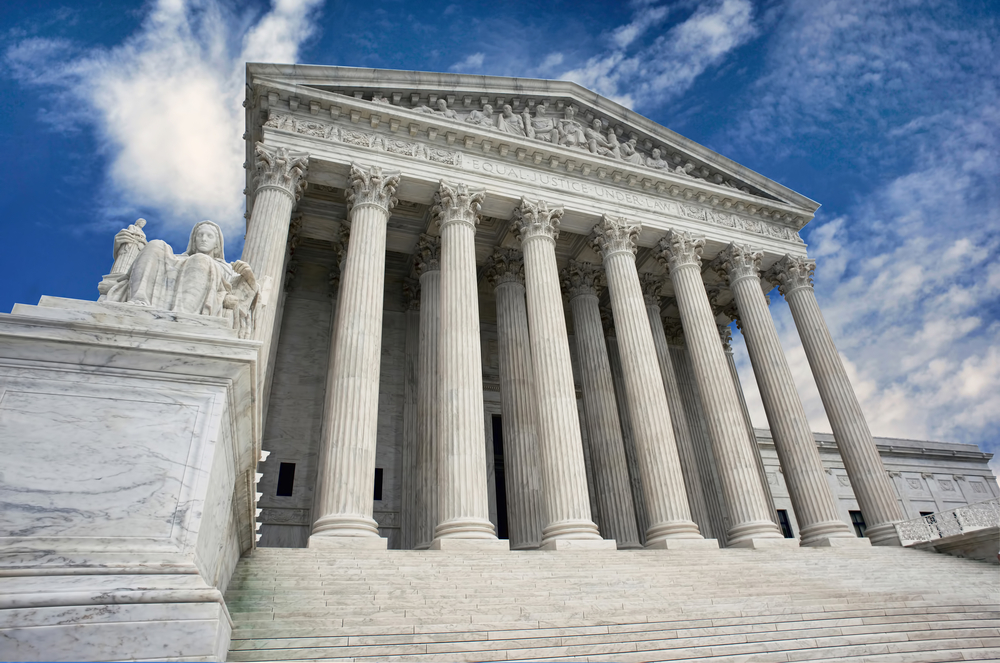WASHINGTON — Seventeen years after Lee Boyd Malvo and John Allen Muhammad killed and injured multiple people during a series of sniper attacks, the Supreme Court is considering whether Malvo should be allowed to be resentenced under two Supreme Court decisions that held that mandatory life without parole sentences for juveniles (JLWOP) are unconstitutional under the Eighth Amendment.
In 2012, the Supreme Court ruled in Miller v. Alabama that mandatory life without parole sentences for juveniles were unconstitutional on grounds that such sentences fell under “cruel and unusual punishment.” Four years later, the court ruled in Montgomery v. Louisiana that the Miller v. Alabama decision should apply retroactively and clarified that the Constitution “bars life without parole sentences for all but those rare juvenile offenders whose crimes reflect permanent incorrigibility.” The ruling ultimately opened the door for thousands of prisoners to seek resentencing hearings.
Now, in Mathena v. Malvo, the court will decide whether Malvo — who was 17 at the time of the attacks — was wrongly sentenced to life in prison without parole due to lack of consideration for his age and is thus entitled to a resentencing hearing.
Malvo, who in 2004 received multiple life sentences without parole in Virginia for crimes related to the shootings, petitioned for resentencing relief in 2013 after the Miller ruling. Though a Virginia district court initially dismissed his petitions on grounds that Miller did not apply retroactively, the petitions were reconsidered after the Montgomery ruling in 2016.
While Virginia argued that the two Supreme Court decisions didn't apply to Malvo because Virginia doesn't impose mandatory life without parole sentences, the district court ultimately ruled in Malvo's favor and ordered new sentencing hearings — a decision affirmed by the Fourth Circuit courts before Virginia appealed the decision to the Supreme Court.
For more information on Youth Gun Violence Prevention, go to JJIE Resource Hub | Youth Gun Violence Prevention
While it's unlikely that resentencing would lead to less prison time for Malvo, who also received multiple life sentences related to the shootings in Maryland, a favorable ruling from the Supreme Court could affect dozens of other Virginia inmates who were also sentenced to life without parole as juveniles before Montgomery v. Louisiana.
Mandatory vs. discretionary sentencing
Justices' questions during oral arguments in the case Wednesday largely hinged on whether Miller applies to discretionary life without parole sentences for juveniles, whether a discretionary sentencing regime satisfies the requirements of Miller and Montgomery, and whether those decisions apply to Malvo's situation.
Virginia Solicitor General Toby Heytens renewed the argument that Miller applies neither to cases in Virginia nor to Malvo's case because the state doesn't implement mandatory life without parole sentences. Justice Elena Kagan said the lesson of Miller was not whether it involved mandatory sentences, but that “youth matters” when it comes to sentencing juveniles and “how a judge or a jury, whoever the sentencer is, has to take that youth into account.”
Justice Brett Kavanaugh asked whether discretionary sentencing schemes meet the substantive requirements of Miller in a procedural way or if there had “to be something more on the record stated by the sentencing judge about youth.”
While Heytens argued that discretionary sentencing was adequate, Malvo's attorney Danielle Spinelli argued the opposite. She also said it was unlikely the judge in Malvo's cases considered his age or any other factors since the only sentencing options for capital murder convictions in Virginia at the time were the death penalty and life without parole.
Ruling could affect non-Virginia inmates too
Following oral arguments, Marsha Levick — chief legal officer of the Juvenile Law Center and co-counsel on the Montgomery case — said she was neither hopeful nor pessimistic about the case. A favorable ruling would have significant impact on more than just Virginia inmates, she said.
“There are more than a dozen individuals in Virginia who are being denied resentencing, so for those individuals a favorable ruling is quite important and significant,” she said. “There are many more across the country who received discretionary sentences who have not yet been resentenced who might likewise benefit or suffer, depending on the ruling.”
Jody Kent Lavy, executive director of the Campaign for the Fair Sentencing of Youth, said she hoped the Supreme Court would affirm the Fourth Circuit's decision, as well as Miller and Montgomery, and criticized Virginia for interpreting the rulings so narrowly.
“These landmark rulings apply to Virginia as they do every other state, and over the years the Commonwealth has chosen to interpret them so narrowly that it is out of compliance with the Supreme Court and the Constitution,” she said.
Ashley Nellis, a senior research analyst with The Sentencing Project, said she left the arguments feeling hopeful about the case and was glad that Kagan kept reiterating the importance of age in the prior Supreme Court rulings and the case at hand.
“The issue is about young age, and that youth and its attending characteristics are critical for sentences. Youth is a transient phase,” she said. “… It’s easy to get caught up in the specifics about these cases, but it’s really about young people. [Resentencing] doesn’t mean they’re going to get out.”
A formal ruling on the case is expected in June.
